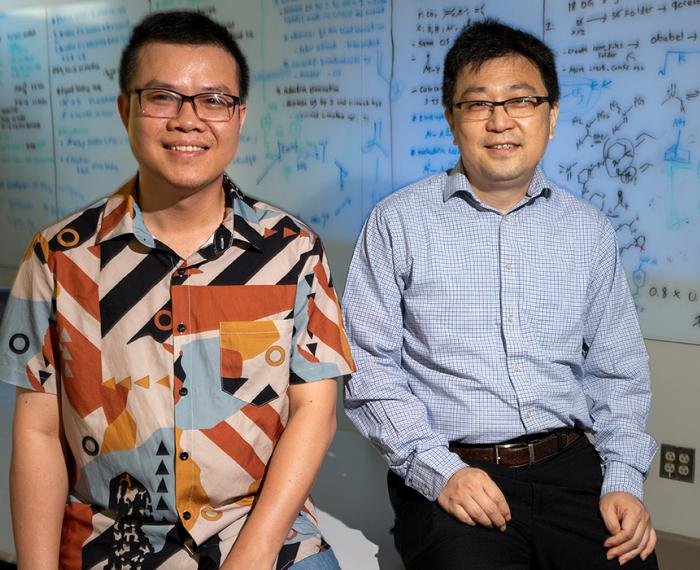Amino acids that are unlike anything that occurs naturally have been developed by a team of researchers, a discovery that could lead to novel protein therapies and possibly even new branches of chemistry.
Amino acids are basic components of proteins that are found in all plants and animals. Every protein in our bodies is made from the same 20 constituent amino acids, all of which appear in nature.
However, new experiments by researchers at the University of Pennsylvania reveal that the basic amino acids that appear naturally in our world, popularly recognized as the “building blocks of life,” are not the only ones that can exist.
A study by the team that appeared in Science on July 27 has revealed a new method of creating amino acids that the researchers say are entirely new both to nature and also to organic chemistry.
Scientists have long known that some substances produced by living organisms that serve as catalysts for chemical reactions, otherwise known as enzymes, are able to exceed their normal performance capabilities with combined with reactive substrates.
In addition to substrates, light can also help to increase reactions under such conditions. In their recent research study, the University of Pittsburg team learned that by combining an engineered tryptophan enzyme that functions as a catalyst (known as a synthase) with an organic light-reactive catalyst, they were able to create several amino acids never seen in nature.
“This is a completely new transformation,” according to Peng Liu, professor of chemistry University of Pittsburg’s Kenneth P. Dietrich School of Arts and Sciences.


Liu was a corresponding author on the recent Science paper, along with colleague Binh Khanh Mai (pictured above).
“Telling an enzyme to create an unnatural configuration of an amino acid is unusual,” Liu said in a statement that appeared on the university’s website, adding that “you have to do it with careful bioengineering.”
By altering one portion of a protein, scientists can change both the shape and the function of amino acids, a facet of chemistry that could have wide-ranging implications in a variety of scientific fields.
However, achieving this in the lab isn’t a simple task. In the past, researchers have had to chemically transform portions of molecules while pieces from amino acids that linked them together that form chains of proteins were protected.
In their paper, Liu and the University of Pittsburg team, in collaboration with researchers from UC Santa Barbara, describe finding a simpler method where they used a chemical component called a PLP enzyme in a novel manner, resulting in what Liu calls “an entirely new reaction.”
First, the team employed computer simulations to help understand the ways various chemical reactions take place, revealing new insights into the behavior of particles that included the distance an electron has to travel between a pair of molecules.
“We had to do some careful modeling about the likelihood of this,” Liu reports, “because this is the step that’s new to nature, and it supports the entire reaction mechanism.”
With help from the University of Pittsburg’s Center for Research Computing, simulations of the required complexity were achievable by the team, allowing them to put supercomputers to work in helping to unravel the finer process that occurs during chemical reactions.
Liu says there are potentially countless numbers of unnatural amino acids this new process can generate, which prompts the question as to whether researchers could also use it to develop other novel kinds of chemical reactions.
Although the discovery of “unnatural” amino acids is in itself a fascinating breakthrough, the research team says this is really just a first step toward obtaining a more complete understanding of how these chemical reactions work, which could have beneficial uses in everything from the creation of innovative new medicines to therapeutic applications and much more.
Liu and the team’s paper, “Stereoselective amino acid synthesis by synergistic photoredox-pyridoxal radical biocatalysis,” appeared in Science on July 27, 2023.
Micah Hanks is the Editor-in-Chief and Co-Founder of The Debrief. He can be reached by email at micah@thedebrief.org. Follow his work at micahhanks.com and on Twitter: @MicahHanks.

